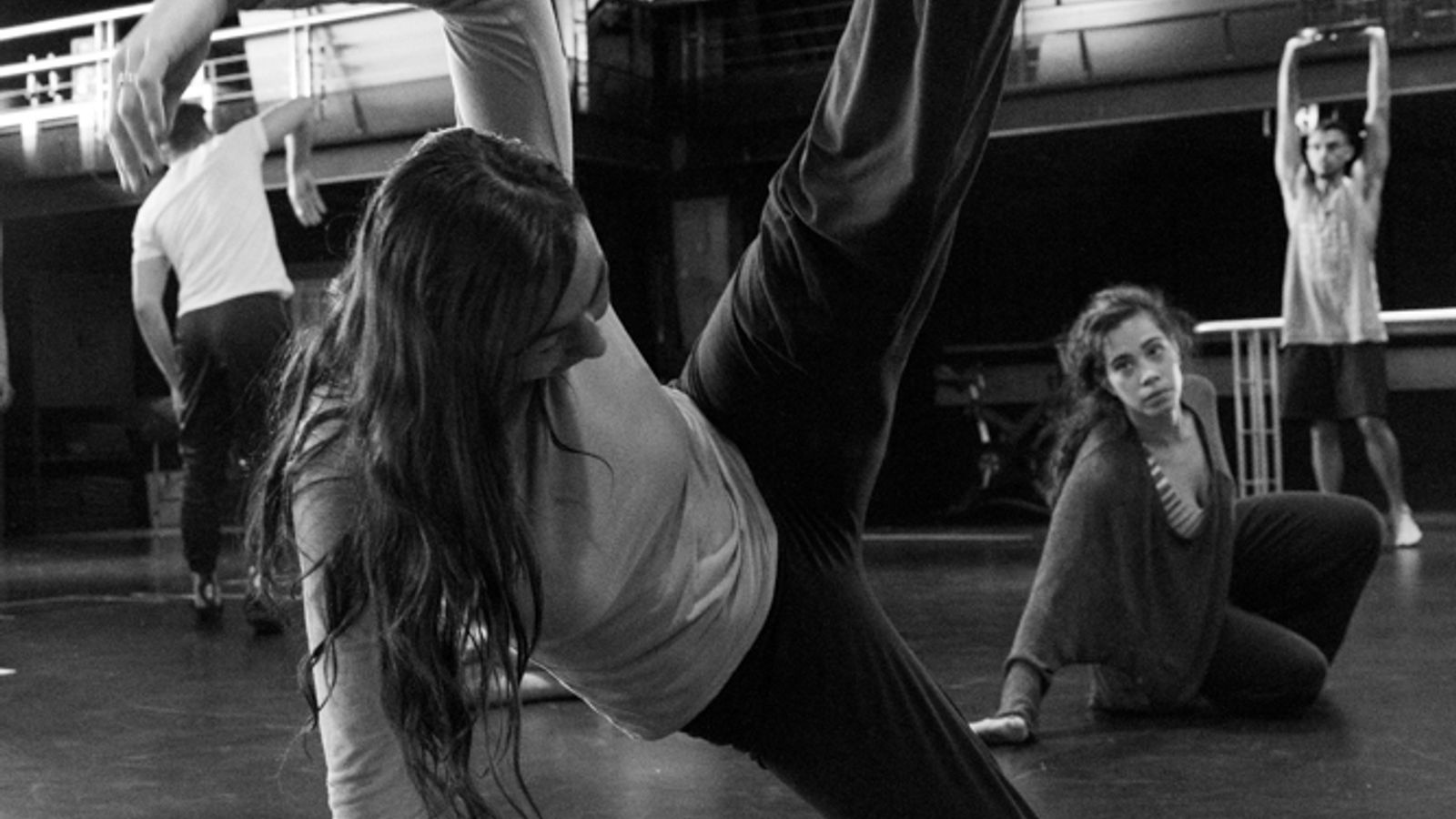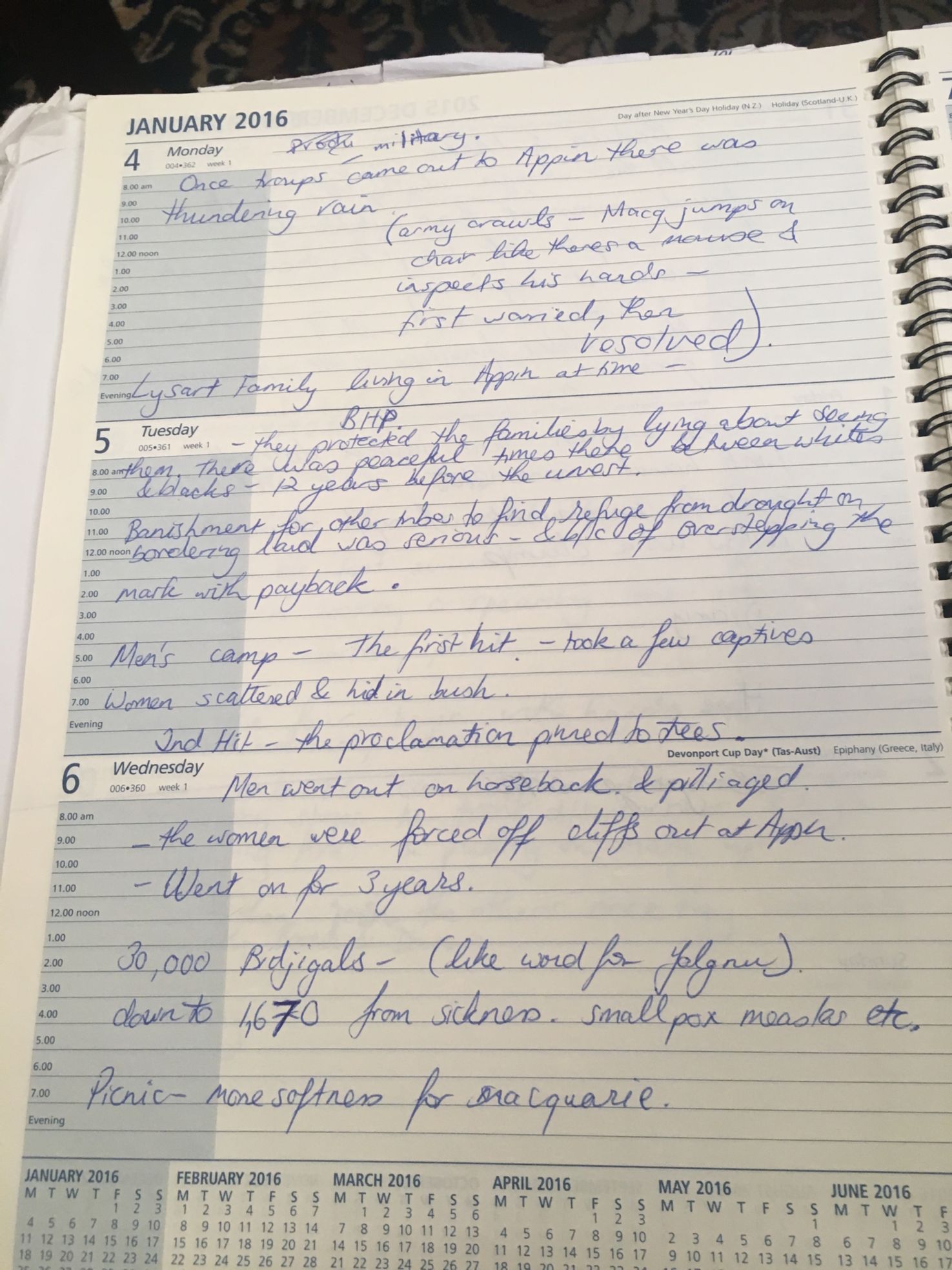
The seed for Macq started when I first became aware of the 1816 massacre at Appin while living in Liverpool in Western Sydney around a decade ago.
An encroaching statue of Lachlan Macquarie’s head there prompted in me the question: who was this man? It was as though the more I saw his name, the more I saw his name.
Macquarie is known as the father of New South Wales in our education system,and yet, for the First Nations people of the Sydney area,their reality was influenced by an entirely different man to the one whom we are taught to know. I wanted to delve into this realityand peel back the layers of this man, and what impact his actions have had on Aboriginal past and present.
From my research at the Mitchell Library, and through consultation with Frances Bodkin and Gavin Andrew – direct descendants of the D’harawal people who lived at Appin – a more complex story unfolded. Macquarie’s diary entries convey his feelings toward the First Nations community, and I felt a strong responsibility to tell their experience, and uncover the trauma he was ultimately responsible for.
By the early 1800s, Lachlan Macquarie had established a reputation as a generous and fair Governor of the broader Sydney region. His initiatives for the ‘natives’ in the early days of his governance included providing farmland for the men; schooling for a handful of children; and the annual Durbur picnics at Parramatta.
Indeed, descendants of those killed in the Appin massacre recall stories of some 12 years of peace and friendship between settlers and the D’harawal before Macquarie’s declaration of war in April 1816, and this changed the course of history.
The first signs of tension had arisen in other areas between settlers and Aboriginal people, and what may have been good intentions on Macquarie’s part eventually gave way, revealing his true loyalties. His diary entries uncover his frantic attempt to keep Aboriginal people aware of their boundaries, and the drastic measures he took to regain control.
Australians from every background deserve to know the full history of our home, including the uncomfortable parts that are often hidden. In shared ownership of this history lies true reconciliation.
2016 marks the 200th anniversary of the Appin massacre, therefore how poignant it is that this story is shared.
So much of Sydney is named for him, but what legacy has the darker side of his governance left for us all?
I’d like to thank Stephen for nurturing this story when it was originally created back in 2013; to the dancers for bringing these characters to life with such commitment and artistry; and to the wonderful creative team of Jacob Nash, Jennifer Irwin and Matt Cox.
Lastly I’d like to thank my musical collaborator and dear friend David Page. His score for Macq brought a rich layer of storytelling to my choreography. His spirit lives on in his music, and we are blessed to dance with it.

Australians from every background deserve to know the full history of our home, including the uncomfortable parts that are often hidden. In shared ownership of this history lies true reconciliation
-
Choreography
Jasmin Sheppard
-
Choreography